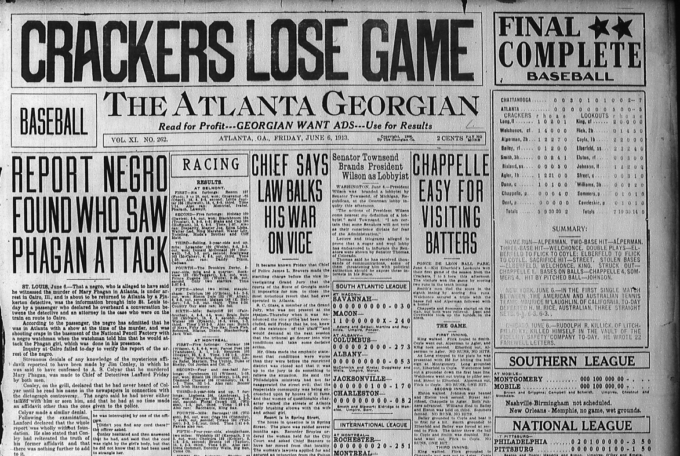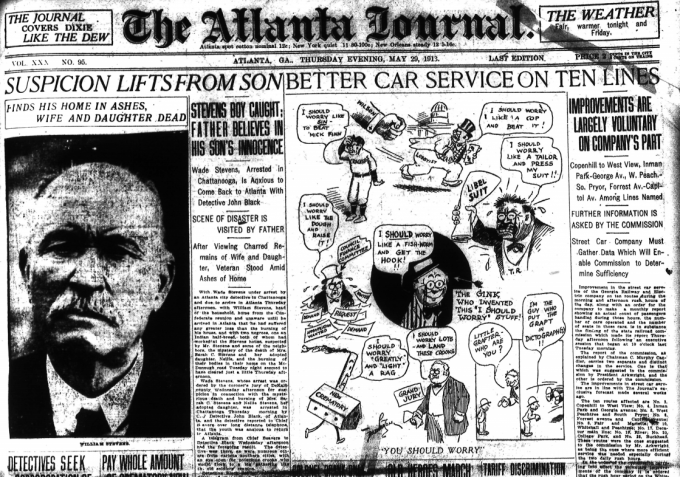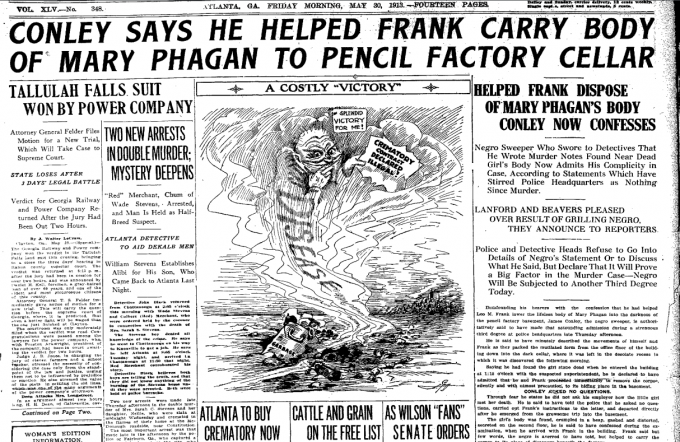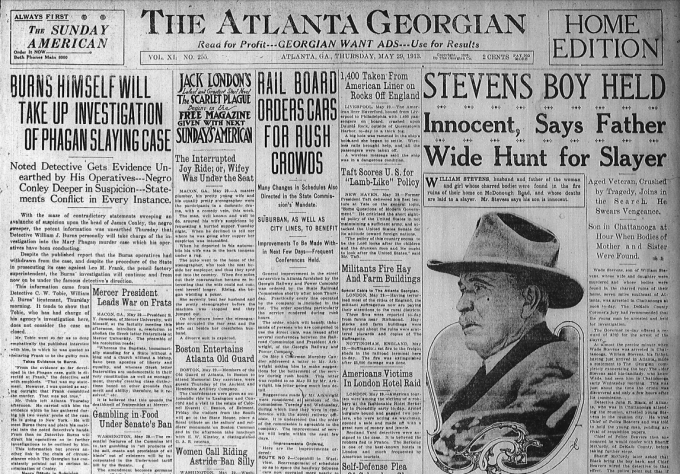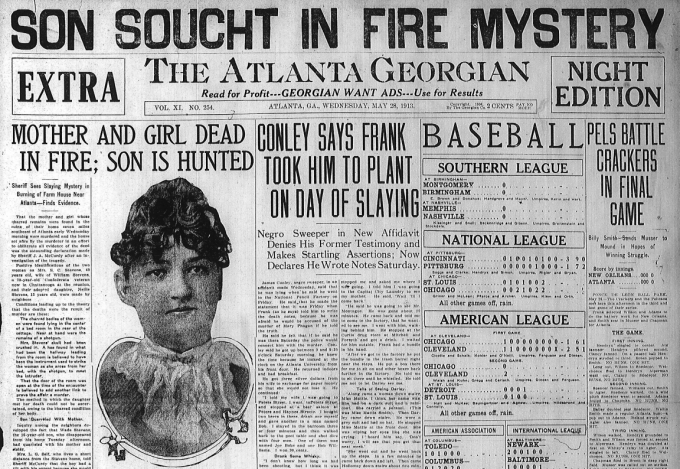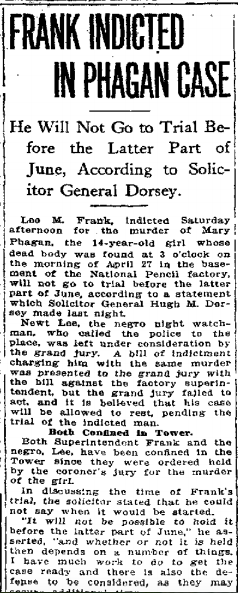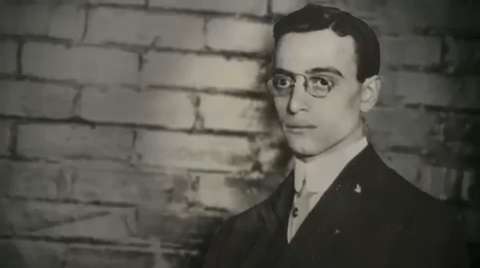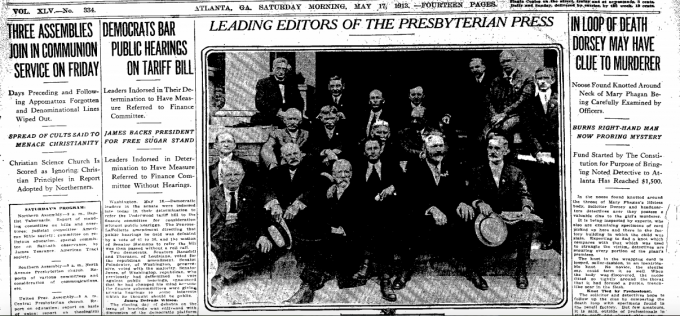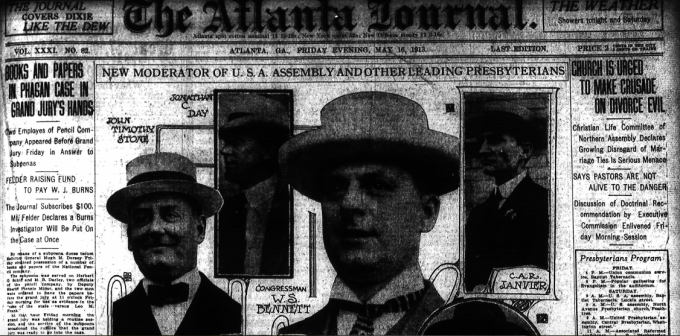Another in our series of new transcriptions of contemporary articles on the Leo Frank case.
Atlanta Journal
August 9th, 1913
Solicitor Dorsey Fiercely Attacks Evidence Given by the Witness For Defense Afternoon Session
He Also Implies That Watchman Was Trying to Fix Crime on Conley to Get Reward. Holloway Admits Signing Statement Produced by the Prosecutor—Other Witnesses for Defense Heard
After Solicitor Dorsey riddled E. F. Holloway, day watchman at the National Pencil factory, with volleys of questions regarding former statements made by the witness and which he could not explain or make coincide with his testimony Friday afternoon, court adjourned at 6:45 o’clock until 9 o’clock Saturday.
The solicitor also trapped the watchman and the witness for the defense. The solicitor also made the sensational implication that the bloody stick found by Pinkertons in the factory was planted by Holloway himself. The solicitor further implied that Holloway was working for a reward and had turned up Conley for that purpose.
After Holloway had declared that Daisy Hopkins’ character was good as far as he knew, the solicitor asked him about a paper he had signed previously stating the contrary. He admitted that he signed the paper. The solicitor asked the witness if he hadn’t told the detectives to return to the factory on a certain day and he was sure they would find something. The witness denied this.
Continue Reading →






 Another in
Another in 